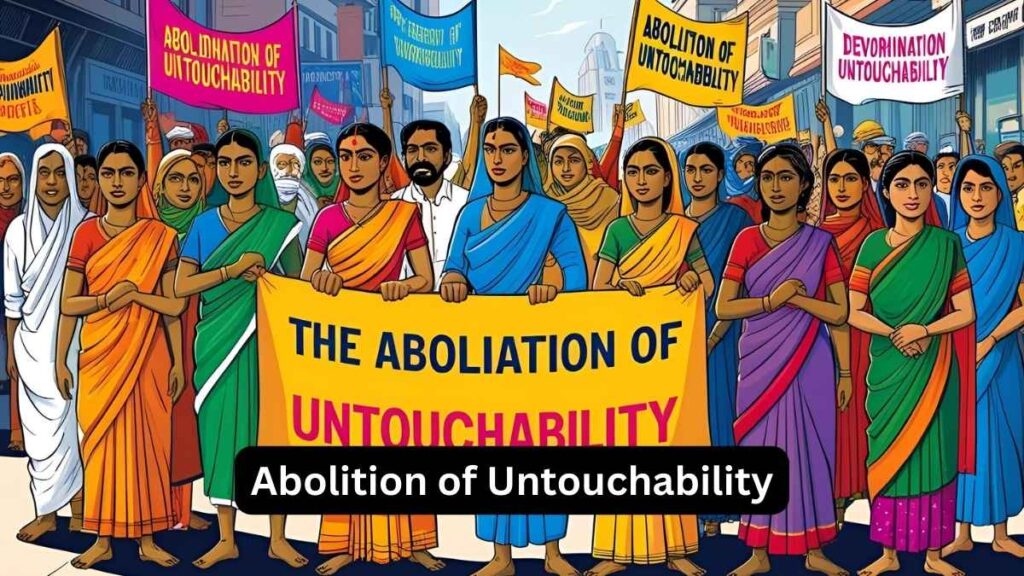Font size:
Print
Judicial Precedents and the Questionable Bail Conditions in Rape Cases
Context:
The Allahabad High Court, in the case of Atul Gautam vs State of Uttar Pradesh (2025), recently granted bail to a man accused of raping his inter-faith live-in partner on the pretext of marriage.
More on News
- The bail was conditioned upon his marrying the survivor under the Special Marriage Act and depositing ₹5 lakh.
- This ruling echoes similar past decisions, such as Abhishek vs State of Uttar Pradesh and Ors. (2024), where bail was granted to a rape accused on the condition that he marry the survivor and assume responsibility for her and their newborn child.
- A precedent for such rulings was established in Ramashankar vs State of Uttar Pradesh (2022), where similar bail conditions were imposed.
Legal Concerns Surrounding Bail Conditions
- Judicial Authority: These cases raise fundamental legal and ethical concerns regarding the judiciary’s authority to impose marriage as a bail condition for rape accused individuals.
- State’s Failure: They also highlight the state’s failure in ensuring adequate welfare measures for survivors and children born out of such crimes.
- Contradicting Supreme Court’s Guidelines: In Aparna Bhat vs State of Madhya Pradesh (2021), the Supreme Court of India laid down explicit guidelines for bail conditions, emphasising that courts must prevent any contact between the accused and the survivor to avoid secondary trauma.
- Stereotypes and Patriarchy: Additionally, the Supreme Court directed that bail conditions must not reinforce gender stereotypes or patriarchal norms, aligning with the Code of Criminal Procedure, 1973.
- Arbitrary Conditions: In Kunal Kumar Tiwari vs State of Bihar (2017), the Court clarified that while Section 437(3)(c) allows the imposition of bail conditions in the interest of justice, such conditions must not be arbitrary or extend beyond the statutory framework.
Adverse Impact on Survivors
- Women’s Dignity: The reasoning that marriage can serve as a remedy for rape perpetuates harmful notions regarding women’s autonomy and dignity.
- Reinforcing Gender Biases: It wrongly suggests that marriage can rectify the alleged loss of honor, thereby reinforcing gendered biases and fostering a coercive and unequal marital relationship.
- Ground for further Abuse: Such conditions can also create an environment where the accused exploits the survivor under the guise of reconciliation, leading to further abuse and manipulation.
- Survivor as More Vulnerable: Furthermore, these conditions impose undue dependence on the accused, potentially making survivors vulnerable to future mistreatment.
- Normalisation of Crimes: Courts that advocate such marriages risk normalising and legitimising heinous crimes by placing the burden of resolution on the survivor rather than ensuring justice through due process.
- Means to get Bail: The accused may also use the promise of marriage as a strategic tool to secure bail or leniency in sentencing, ultimately undermining the principles of justice.
State’s Responsibility and Judicial Overreach
- In Re: Right to Privacy of Adolescents (2024), the Court ruled that the state must provide essential support, including shelter, food, education, and counseling for survivors.
- However, inadequate support systems often force survivors to rely on their perpetrators, perpetuating cycles of exploitation and violating their fundamental right to live with dignity under Article 21 of the Constitution.
- By failing to establish robust victim support mechanisms, the state indirectly shifts its responsibilities onto the judiciary.
- Consequently, courts resort to solutions that may conflict with constitutional principles and compromise the autonomy of survivors, effectively coercing them into dependency on their perpetrators.
Conflict of Interest in Conditional Bail
- Due Process: Imposing marriage as a bail condition during an ongoing trial presents serious concerns regarding due process.
- Bail hearings should not prejudge the accused’s guilt or influence the merits of the case.
- However, requiring marriage as a bail condition alters interpersonal dynamics between the accused and the survivor, potentially affecting trial proceedings and the survivor’s ability to testify freely.
- Judicial Impartiality: Furthermore, if the court deems marriage a measure for the survivor’s welfare, it raises questions about judicial impartiality.
- Such an approach may create conflicts in convicting and sentencing the accused, particularly if the survivor becomes financially or emotionally dependent on them.
Judicial decisions must uphold fundamental rights and justice, prioritising survivors’ dignity over societal norms. Legal remedies should ensure fairness, while the state must provide support to prevent survivor dependence on perpetrators and maintain judicial integrity.


